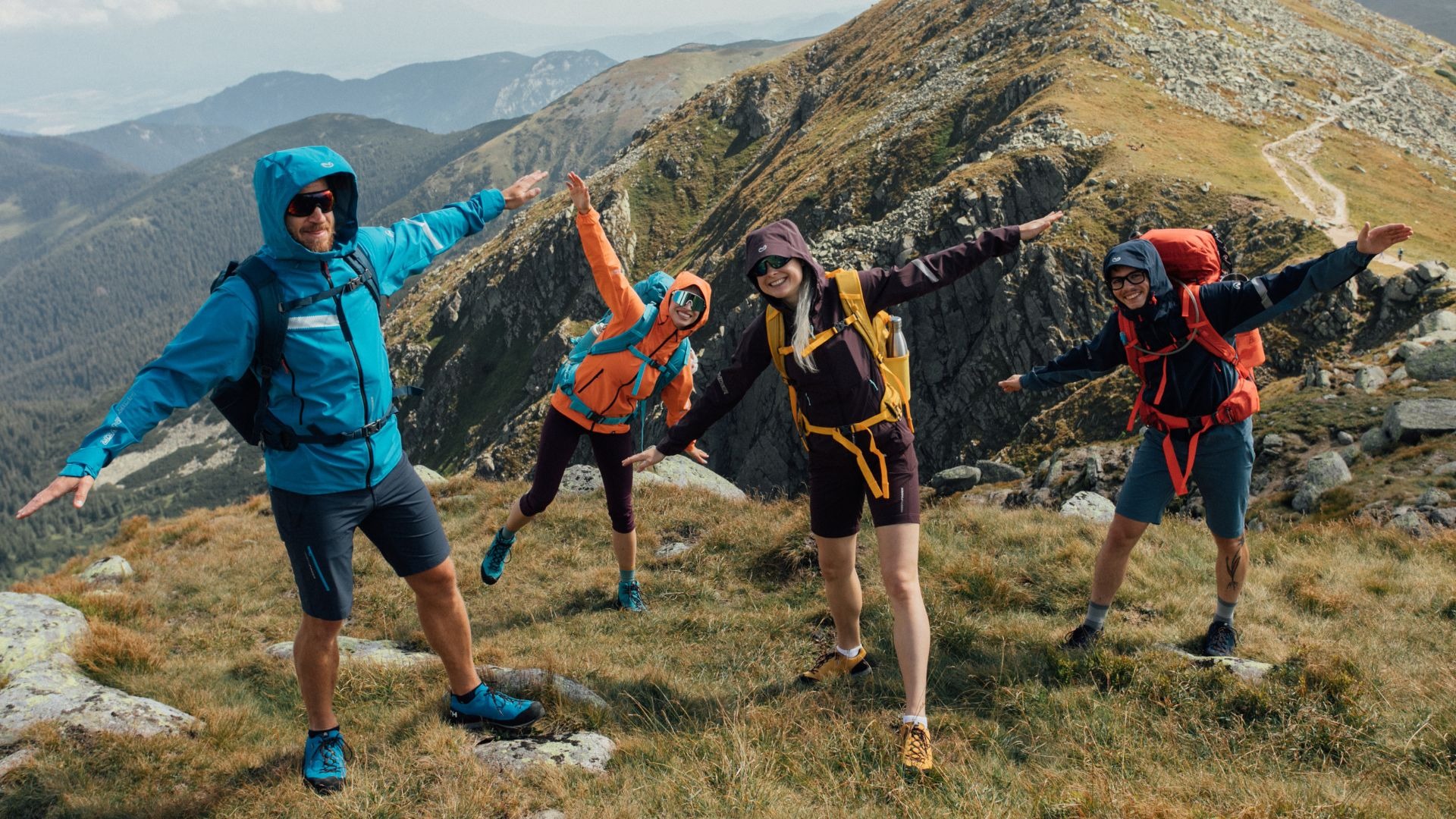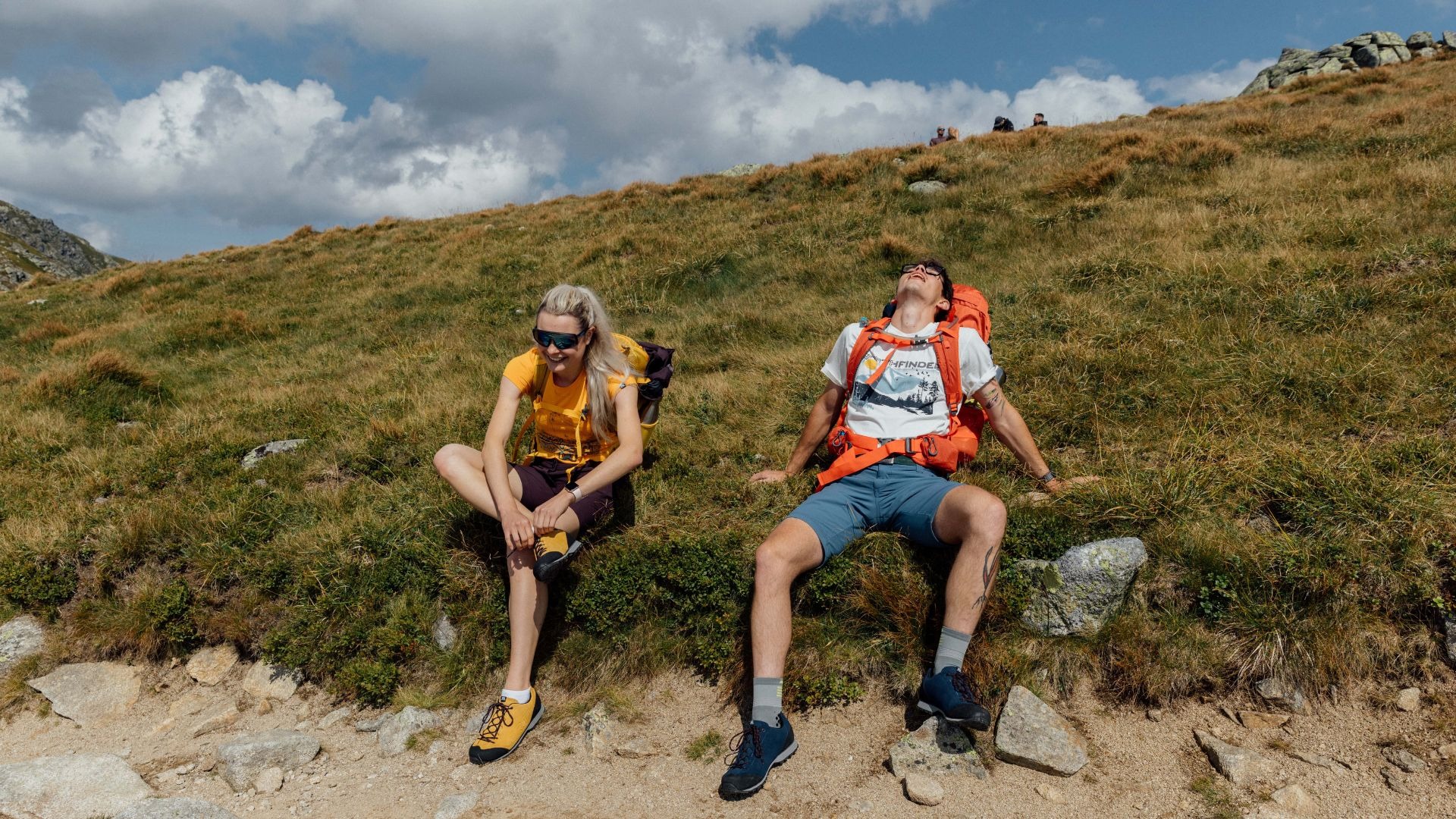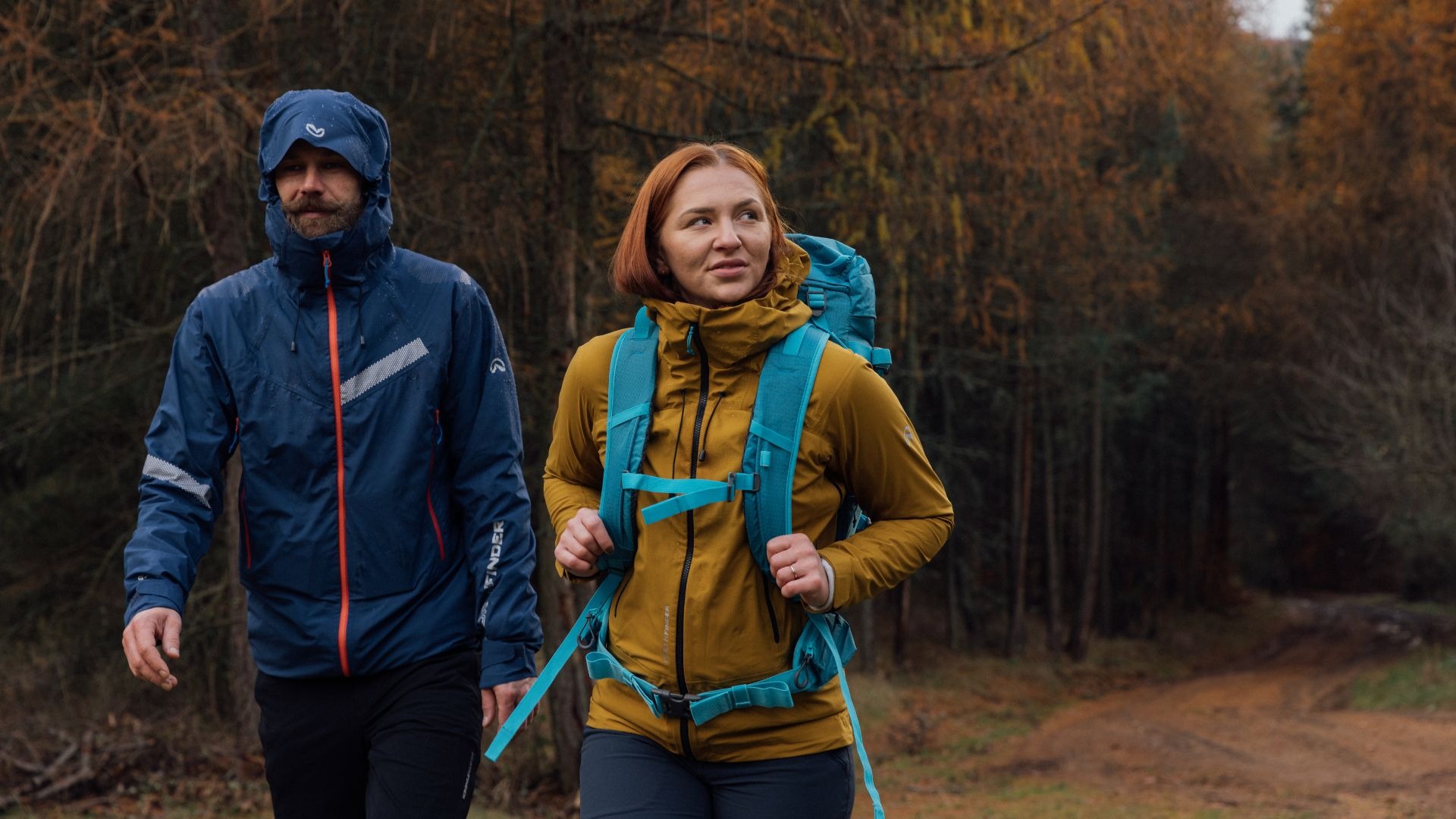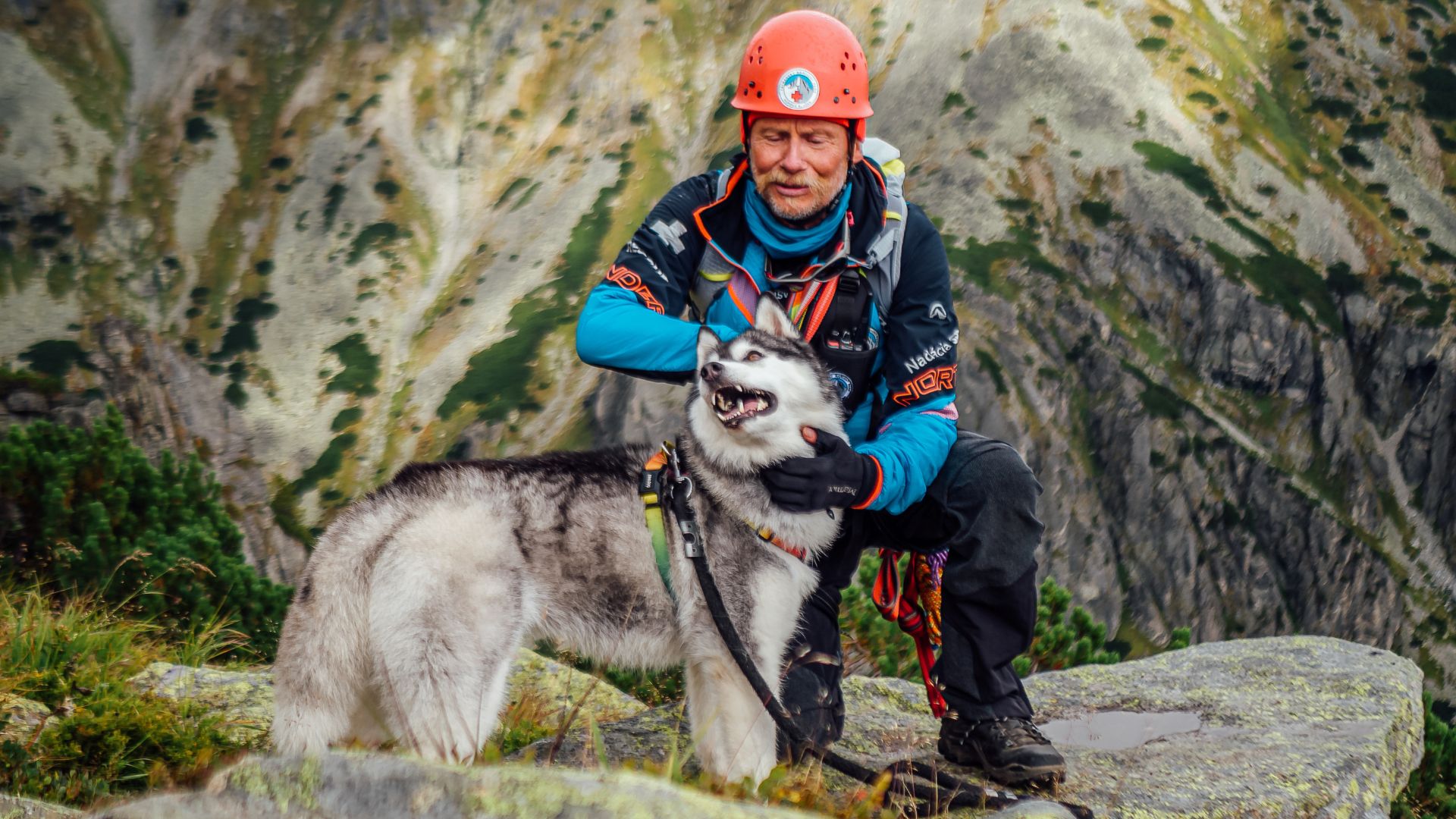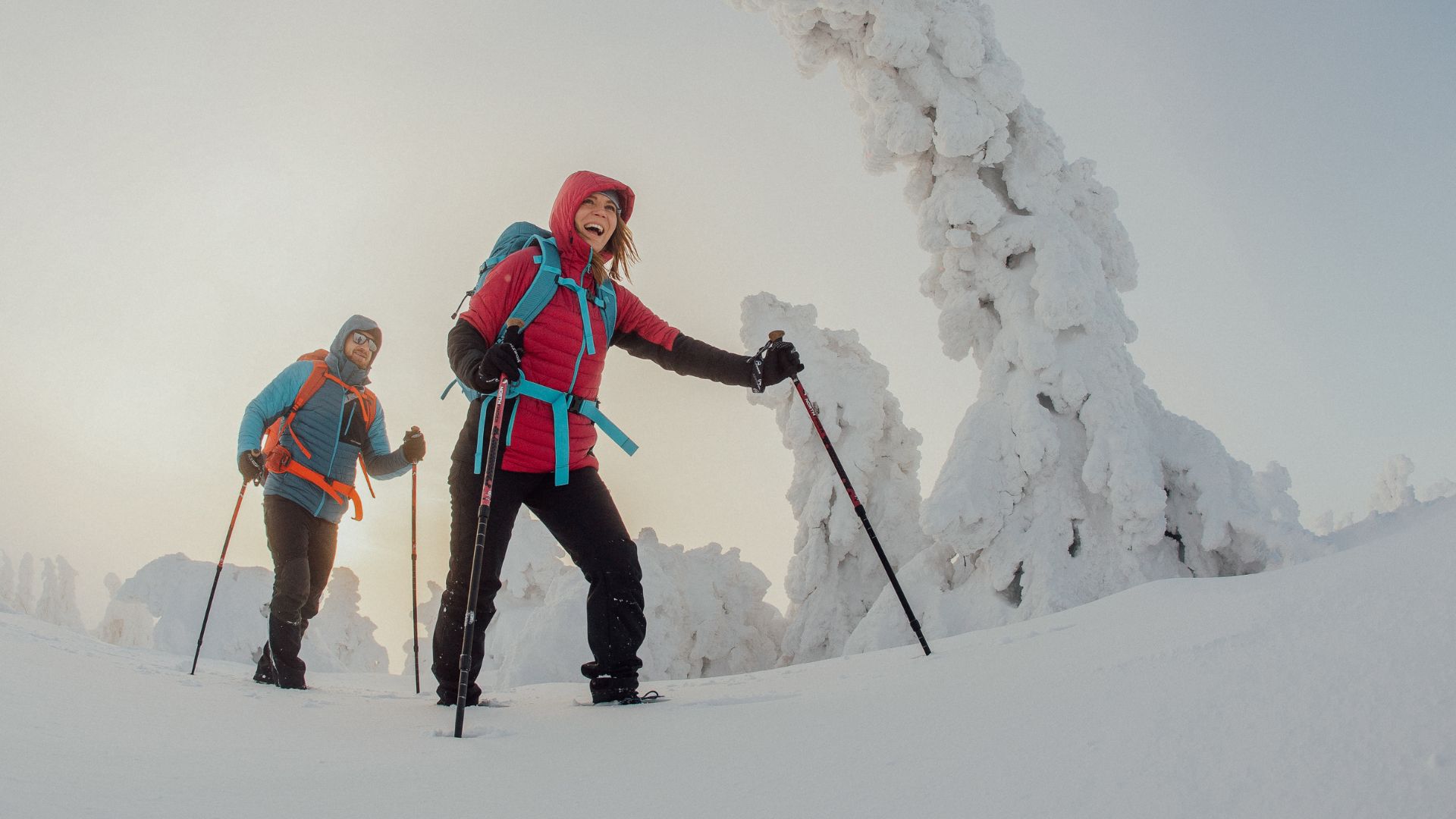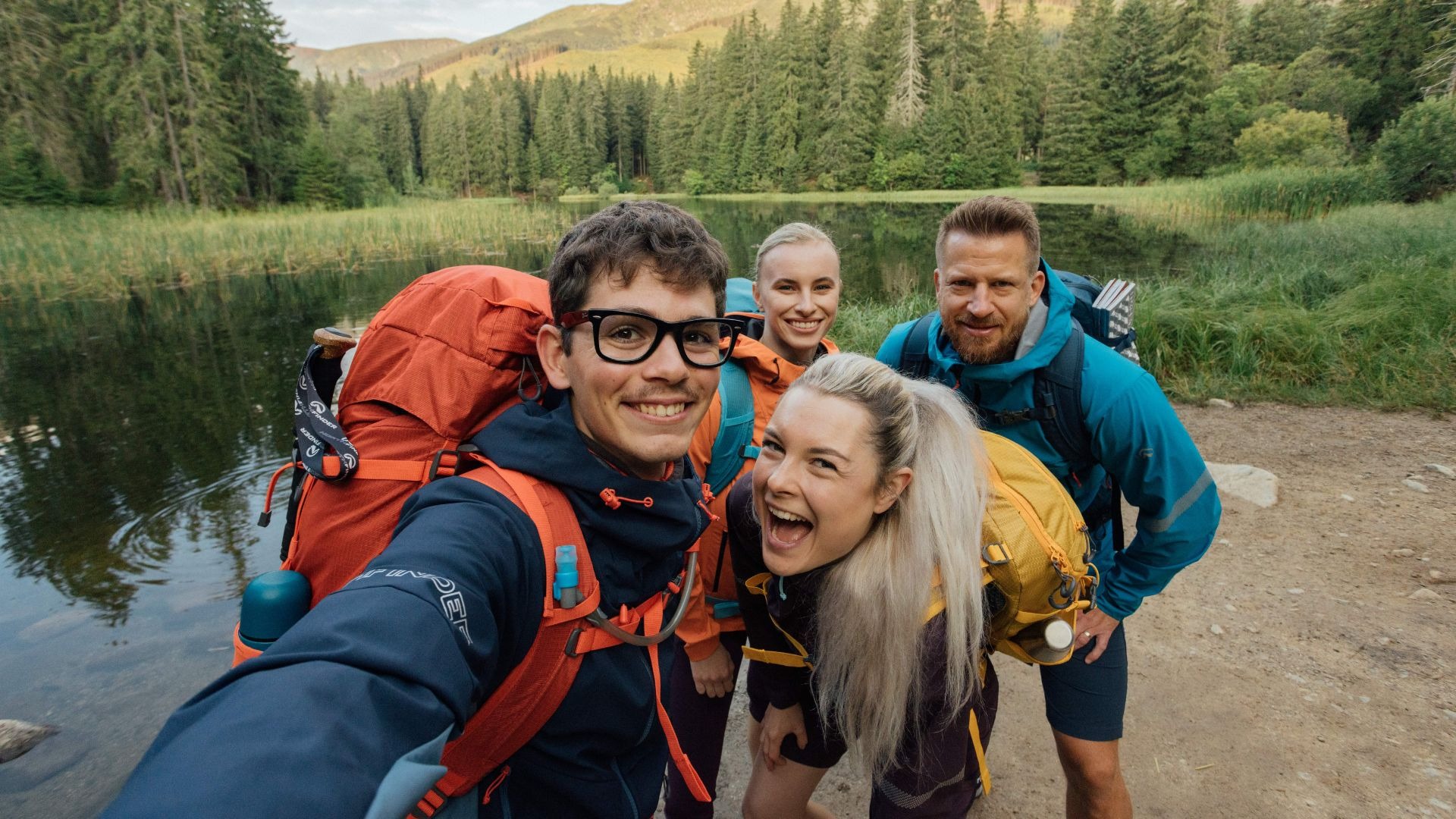It can't be seen, can't be bought. Friendship is the most beautiful thing you can find in the mountains.
We are evolutionarily wired to enjoy movement, fresh air, and beautiful scenery. But in the mountains, we are often better to each other and create lifelong friendships. Why is that so?
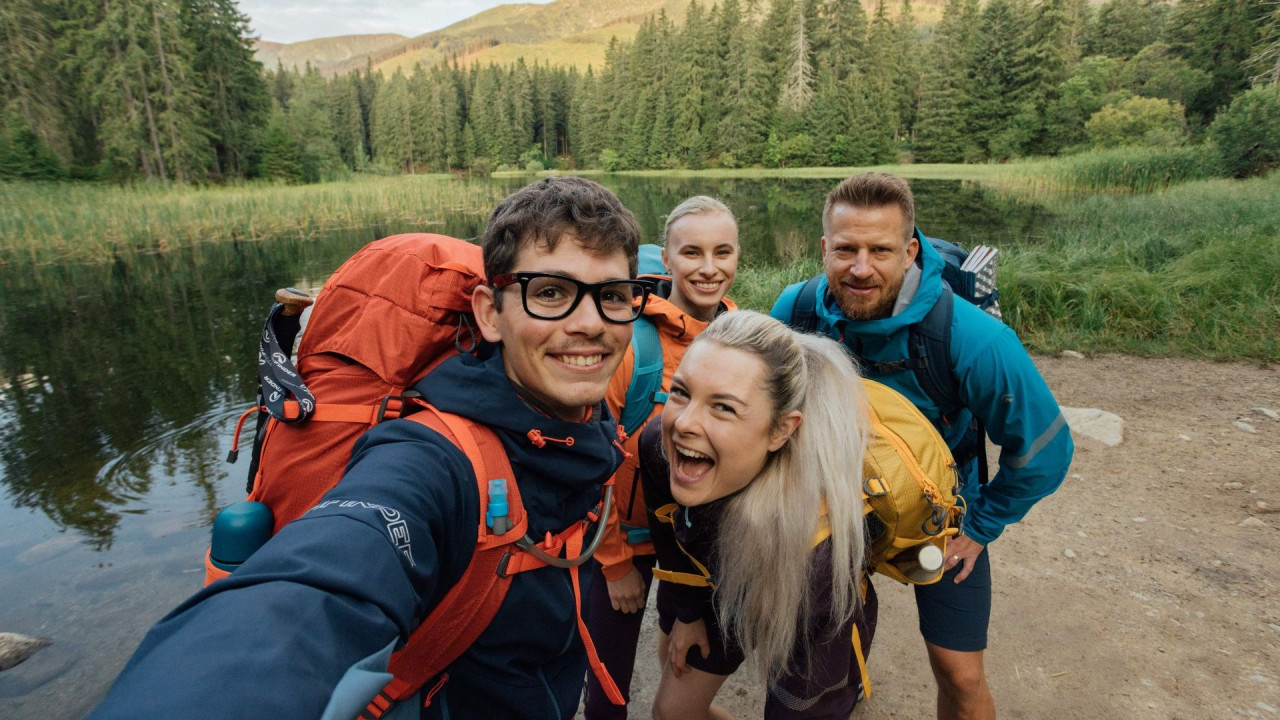

Everyone who goes to the mountains feels somehow lighter and better. We return physically tired but at the same time strengthened and energized. Therefore, they are also the center of the universe for Northfinder. Besides joy and energy, mountains bring another priceless thing to our lives: free, but at the same time, no money can buy it.
Friendship. Honest, mutual, and balanced.
More precisely, the mountains offer us excellent conditions for new ones to emerge. Also, old and strong friendships can grow even more robust with new experiences that fulfill them and give them meaning
True friendships give us a sense of fulfillment, stability, and understanding. We need them most in our busy lives, where we are more and more connected but less together. Even in scientific circles, they are starting to talk about the fact that the feeling of long-term loneliness is growing among people. This problem is becoming so pronounced that some states are already beginning to deal with it at the national level because long-term loneliness also affects people's physical and mental health.
A trip to nature is, therefore, a great way to manage these feelings bet We looked at this question through the point of view of Fero Mrázik, a mountain guide, chairman of the voluntary corps of the Tatra Mountain Service and ambassador of the Slovak brand Northfinder, and Lucia Pružinská, a psychologist and psychotherapist.
We are wired to feel good in the mountains
It is difficult to form new friendships in the daily cycle of duties, worries, and stress, even though these are precisely the times when we may need a friend close to us the most. However, time, space, and the right state of mind are needed for friendship to form. And that's what the mountains make possible - to be at ease and peace, gain perspective, and open up to others. Everyone has it rooted somewhere deep inside. Even our ancient ancestors faced daily stress, fear, or banal worries. And while there weren't entire industries catering to our sense of well-being and entertainment, there were still pretty views, sunsets, the moon, and stars to take the mind away for a while.
"In the mountains, the mind is unencumbered, in an environment that feels natural. In life down there in the valley, we are constantly collecting something... New information, news, junk... We can't just do nothing and let the mind rest. I started going to the mountains intensively when I was about 15 years old; at that age, I was still far from being mature. But even then, I realized that all my problems and burdens remained somewhere down there. Only something like life essence reached the top, cleansed of all ballast, roles, and hierarchies. Eastern cultures say that muddy water clears only when calm. Down there, we run in the same cycle, often focus only on the things immediately in front of us, and lack perspective," describes Fero.Lucia says nature can pleasantly stimulate all our senses without overwhelming our brains. Thus, we find ourselves in peaceful situations that immerse us in reality. Science says that the body's cortisol (the hormone associated with stress) also decreases.In everyday life, it's hard to switch off completely. At work, we have a list of tasks to complete, but we often do not see their meaning right away or at all. We filter quantities of information, messages, and phone calls. After work, we return to our everyday responsibilities as partners, parents, etc. Making room for others is difficult if we don't have enough for ourselves.
However, it all changes entirely after climbing the hill for a while. One gets into his zone and has a single goal before him. And it doesn't matter if it's the top of a mountain, a favorite cottage or buffet, or at least a few kilometers in a familiar forest. When we have the space to let these things out of our heads, we can open up to others.
They make us feel tiny
In cities, humans are the center. Everything is adapted to make life as fast and convenient as possible for us. We find our way around quickly, we have somewhere to hide, and the safety of our home is never far away. And when we don't have any of that, we feel tension, stress, and anger. However, when we stand somewhere on a hill, see kilometers of mountain ranges in the distance, hear the roar of a waterfall, or look at a pond where the surrounding peaks reflect, we feel awe.
Something similar, only in a more extreme form, was also observed in astronauts who look at the Earth from its orbit. They see a planet teeming with life, protected by a thin layer of atmosphere in the middle of a vast void, which can shake their value system. We can have a similar experience in the mountains on a slightly different scale.
"It is an interesting emotion that has transformative effects on a person; it can change our view of the world. When we find ourselves near beautiful and enormous things, in front of which we no longer feel so big, our humbler and humbler selves come to the surface," says Lucia.
"I don't think it's a coincidence that all the monasteries and temples where people went to meditate, pray, and look for answers are in the mountains," adds Fero.
They challenge us and strengthen our bonds
"When you find yourself in a difficult situation with someone when health or life is at stake, it can create a powerful connection. That's when everyone steps out of their comfort zone, and their true nature shows alongside their ability to make decisions and act to deal with the situation. Then you will see if you continue spending time with that person and are willing to do other things together. A difficult experience strengthens people physically and mentally but also strengthens their relationship," says Fero.
Also, according to him, as we get older and more experienced, these situations teach mutual empathy. "You can look at difficult things not only through your own eyes, but you also learn to empathize more with others. There are situations that someone can process for a very long time. Over time, you will develop a feeling so that you do not remind your friend of something he still hasn't overcome, even if unintentionally. Sometimes, unfortunately, the whole group does not return from the mountains. These are experiences that leave a mark on a person. Empathy will teach you how to treat a given person in specific situations and what to say so that you don't needlessly bring back the trauma," explains Fero.
However, forming a bond between people also has a physiological explanation. The hormone oxytocin is mainly responsible for this. "Sometimes it is also called the love hormone, but it also causes bonds to form between people more easily. It motivates us to act in the interests of the safety and well-being of people close to us," adds Lucia.
Peace that breaks down barriers
We all have roles in everyday life, be it profession, parenting, or engaging in a community life. "In nature or mountain environments, the importance of these roles weakens. The differences between people are suddenly smaller, or at least less important. Maybe you could say that we are all suddenly Adam and Eve in the mountains," says Lucia.
Fero's words also confirm this. "When I am with clients in the mountains, I observe that social positions, functions, and possessions take a backseat. Suddenly, people are more like their normal selves. I'm Fero, you're Jožo... and only after that I'm a CEO or an electrician," he says.
That is why he encourages the people he accompanies to talk to him informally. "Here, we are all free and equal. Then, when I meet you down in the valley, I'll greet you again with 'Good day, Mr. Director.' In most cases, it works, and people accept it," he adds.
According to him, it is also good to process differences of opinion with a clear head and a calm mind. "It is not for nothing that they say that I need to 'breathe' something, to give it time and space to lie down, to shake off. In this way, a person gains more distance, has calmer reactions, and can better accept criticism and the other person's point of view," explains Fero.
Lucia adds that even a successful resolution of a conflict or crisis can create or strengthen a mutual bond between people. "When we suffocate things in ourselves and let them slowly bubble up, over time, we start to distance ourselves from the other person, creating a barrier for ourselves. We do this, especially in relationships that we don't care about. We don't have to agree on everything right away; the important thing is the expressed interest. This shows that we care about each other," concludes Lucia











